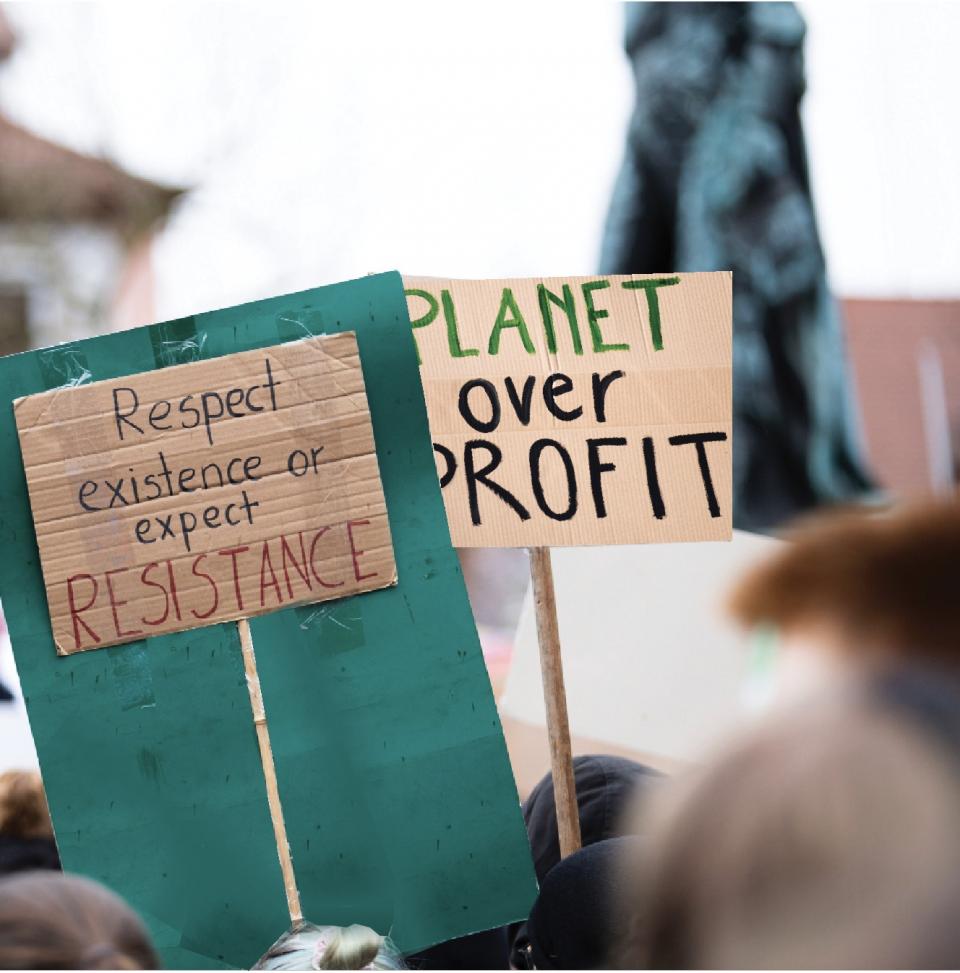
Apocalyptic Narratives & Climate Change
About

About the project
Apocalyptic narratives have become a staple of climate change communication. In scientific publications, government reports, popular entertainment, and the media, climate change is often framed in terms of impending global environmental cataclysm and social collapse. The primary cultural impediment to positive action on climate change is usually presumed to be denial—hence the need to cast the stakes of climate change in the dire imagery of imminent apocalypse.
Yet the very pervasiveness of apocalyptic thinking in the American grain may in fact make apocalyptic narratives less alarming rather than more. From infectious disease to war, a broad swath of the public has long interpreted social and environmental crisis through the prism of apocalypse, casting potential catastrophes and their causes in religious and moral terms. These apocalyptic visions are often narrated from the point of view of the survivors (the “elect”), thus reinforcing a sense that the end times need to be survived by remaining among the elect, rather than prevented through pragmatic action. More challenging still, several strands of American religion see apocalyptic cleansing as vital to genuine moral and social renewal. While religious in origin, these apocalyptic sensibilities have entered into everything from climate reports to novels, non-fiction books and movies, with tremendous consequences for public understanding and responses to climate change.
At the same time, we observe that apocalyptic framings may, in fact, be the most empirically appropriate way of narrating the radical threats to habitability presented by climate change. From rising sea levels and climate migration, to the collapse of insect populations and food supplies, to the potential extinction of over 1 million species, the language of apocalypse is arguably the most accurate way to talk about the world-historical, life-or-death urgency of climate change. Yet in the United States and beyond, whether and how that narrative style is compelling at the level of social action is far from settled. Apocalyptic framings of climate change may lead many to feel overwhelmed by the cataclysmic scale of the threats and so to avoid consideration or action.
In response, the Center for the Study of Religion and Conflict, the Narrative Storytelling Initiative and the Julie Ann Wrigley Global Futures Laboratory have partnered to develop an initiative that combines a study of apocalyptic thinking in the United States, and its global impact, with training in the literature and journalism of social change as a means for rethinking the ways that climate change stories are told. The initiative grew out of a seed grant funded by the Center and Global Futures, and is assisted by a grant from the Luce/ACLS Program in Religion, Journalism and International Affairs.
The project brings the expertise of journalists, climate scientists, and scholars of religious studies and the broader humanities to the task of telling better stories about the stakes of inaction on climate change. In addition to a series of workshops, writing projects, and public events, a centerpiece of the initiative is a new, interdisciplinary, combined upper division and graduate class, “Climate Narratives, Apocalypse and Social Change,” that will be taught for the first time in fall 2021. The class will culminate in the awarding of a prize for the best published narrative exploring the state of our planet and society—past, present, or future.
People
Project Team
Events
Events
Religion and its relationship to the environment and climate change is a topic of deep historical and contemporary significance and cuts across a wide variety of fields, projects and topics. The initiative captures that range of interest by developing specific events and promoting other events related to its work.
Class
Class
A centerpiece of the initiative is a new, interdisciplinary, upper division and graduate class, “Climate Narratives, Apocalypse and Social Change,” that will be taught for the first time in fall 2021.
Course Description: Apocalyptic narratives, which in the United States are rooted in particular traditions of American religiosity and morality, have become a staple of climate change writing. Yet the very pervasiveness of apocalyptic thinking in the American grain--in essays, books, documentaries and even Hollywood movies--may in fact make these narratives less alarming rather than more. In this course, we will consider the origins of apocalyptic narratives, while also studying a variety of alternative approaches--literary, journalistic and filmic--from the history of writing for social change. Our collective research will culminate in a real-life outcome at semester’s end: the naming of the best climate narrative from 2018-2020.
Instructors: The course will be co-taught by two award-winning writers and journalists, Steven Beschloss, professor of practice in the Cronkite School and director of ASU’s Narrative Storytelling Initiative, and Sarah Viren, assistant professor in the College of Integrative Arts and Sciences’s Language & Culture program.
Registration: This interdisciplinary course is cross-listed across multiple ASU schools and units. Undergraduates and graduate students can register now as a 494 or 598 via any of the following links:
College of Liberal Arts and Sciences
School of Historical, Philosophical and Religious Studies, School of Social Transformation, or the Department of English
College of Global Futures
School for the Future of Innovation in Society
Climate Narrative Prize

Climate Narrative Prize
The new Climate Narrative Prize, established in 2021 at Arizona State University, is a biennial award for the best published narrative exploring the state of our planet and society — past, present or future. For its inaugural run, leaders in climate action, research and storytelling will nominate their favorite essays published during the past two years. ASU students will judge the essays as part of a class on “Climate Narratives, Apocalypse and Social Change,” and the winning author will be awarded $5,000 in cash and visit the ASU campus to meet with students and deliver a public lecture.
For more information on the Climate Narrative Prize, visit the website.